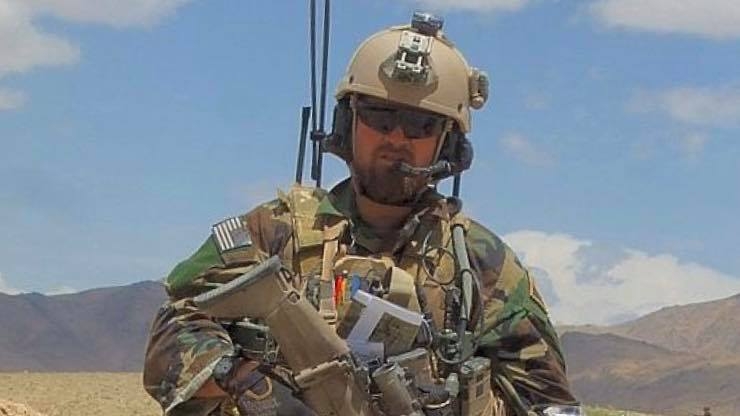Pilgrim’s Progress
By MATT GALLAGHER
Home Fires features the writing of men and women who have returned from wartime service in the United States military.
I’m one of the lucky ones.
War destroys without regard to what’s fair or just. This isn’t a new or terribly profound revelation, but witnessing it, and sometimes participating in it, makes it seem like both. In a professional military, the entire point of training is to minimize the nature of chance in combat. But all the training in the world will never eliminate happenstance in war, or even render it negligible.
I returned from Iraq with all of my limbs, most of my mental faculties and a book deal. I wake up every morning in an apartment in New York City. I’m working toward a graduate degree. I have a beautiful fiancée who reminds me to slow down when I’m drinking. And every day I feel more and more detached and removed from the Iraq dustlands I promised myself I’d shed like snakeskin if I ever got back home.
Like I said, one of the lucky ones.
I didn’t really appreciate the concept of becoming ‘unstuck’ in time until I returned from war.
Meanwhile, the black bracelet on my wrist carries the names of four individuals who weren’t so lucky. One got shot through the armpit with a ricocheting bullet and bled out on an outpost roof. Two drove over the wrong piece of street at the wrong time and likely didn’t even know it was a roadside bomb that ended it all. The last one made it through 15 months of war only to get drunk one night back in the States and shoot himself in the face during an emotional breakdown.
In Kurt Vonnegut’s classic novel “Slaughterhouse-Five,” the protagonist Billy Pilgrim becomes “unstuck in time.” Much of the novel focuses on Pilgrim’s experience of the fire bombing of Dresden in World War II, something Vonnegut himself survived as an American prisoner of war. Like many American literature students, I was required to read “Slaughterhouse-Five” in high school, and if memory serves, I even enjoyed that assignment at 16. But I didn’t really appreciate the concept of becoming unstuck in time until I returned from war. Just like anyone who poured blood, sweat and tears into missions in faraway foreign lands, I left part of myself over there, and it remains there, while the rest of me goes about my business 6000 miles away — a paradox of time and space Vonnegut captured all too brilliantly.
I’ve walked by manholes in New York City streets and smelled the sludge river I walked along in north Baghdad in 2008. I’ve stopped dead in my tracks to watch a street hawker in Midtown, a large black man with a rolling laugh and a British accent, who looked just like my old scout platoon’s interpreter. And I’ve had every single slamming dumpster lid — every single damn one — rip off my fatalistic cloak and reveal me to be, still, a panicked young man desperate not to die because of an unseen I.E.D.
Despite these metaphysical dalliances with time travel the names on my black bracelet are, in fact, stuck in time. Or, more accurately, stuck in memory, where they’ll fade out and disappear like distant stars before becoming shadows of the men we served with and knew.
So it goes.
So it went for my friend Rob. During the invasion of Iraq in 2003 his unit drove through a neighborhood near Baghdad airport in doorless Humvees. A civilian vehicle pulled out in front of them, temporarily blocking their path. A group of teenage boys stood aimlessly on the street, and one exchanged nods with Rob, who sat in the front passenger seat. Rob glanced away quickly, to see if the civilian vehicle had moved yet, and then, suddenly, a grenade bounced off of the inside of the windshield and into the vehicle. Rob followed the small plume of smoke and rattling noises, grabbing the grenade from behind the radio to his left. He picked it up, intending to throw it back out of the vehicle, but it slipped out of his hand and dropped, landing between his feet. He reached back down for it, fingers just meeting casing when it exploded. He lost a hand and suffered severe nerve damage in his right leg as a result.
Back from Iraq, I carried my self-righteousness around in the form of a portable soapbox.
Recounting the story over drinks one night Rob said he wished he and the other soldiers in his Humvee hadn’t taken their eyes off of the Iraqi teens. Then he added that “luck was for sure on our side that day,” because had he not dropped the grenade but tossed it away as planned, it would’ve exploded at head level, likely killing him and possibly the Humvee’s driver, as well. He laughed deeply, and clinked his prosthetic hook against my pint glass.
Everything’s relative, I guess. Especially luck.
If chance is war’s dirty little not-so-secret, self-righteousness is the veterans’. Upon returning to American society, it’s all too easy to fall into pitfalls about what civilians get or don’t get. Nine years of war fought by an all-volunteer force that constitutes less than 1 percent of the total population has augmented this disconnect between soldier and citizen; in many ways, a separate warrior caste has evolved into being. The impact on our republic of fighting protracted, landlocked wars with an all-volunteer force can be debated. The impact of it on those actually fighting can’t be.
After returning from Iraq and separating from active duty, I carried my self-righteousness around in the form a portable soapbox for many months. Occasionally this proved necessary — sometimes the pejorative “they” really didn’t get it. There was the drunk Wall Street-type who told me, without a trace of irony but with plenty of faux-jingoist twang, “it must be awesome to kill hajjis.” And there was the too-cool-ultra-progressive who couldn’t help but smirk condescendingly while pointing out that “we” signed on the dotted line, after all, so “we” should’ve been ready for anything and everything before we departed for Iraq. Then, as passive-aggressively as possible, he analogized modern American soldiers to mercenaries.
Though I’m certainly no tough guy, the primal urge to put both of these guys’ faces through the nearest window was very real and very pointed. I didn’t do that though, for better or worse. Instead, I told the former that some of my best friends were Muslim and that such a black-and-white understanding of the war is what got us into so much trouble over there in the first place. For the latter, I nodded and smiled, telling him that for someone who hadn’t left the borough of Brooklyn in over a decade, he certainly possessed one hell of a world view.
Neither talked to me again. So it goes.
Most of the time though, my soapbox and self-righteousness and sardonic wrath were unnecessary. Not because people didn’t get it, but because I finally realized it wasn’t their fault they didn’t get it. They’re not supposed to get it — this isn’t Sparta, nor is it even post-World War II America. Sometimes — many times, actually — they wanted to get it. Slowly and surely, I found the all too obvious solution of simply answering people’s questions as considerately as I could, careful not to ascribe my experiences as universal to all of Iraq or all of Afghanistan. I’d rather ramble, I reasoned, and provide nuance and opinion than serve as the representational hollow caricature born only to sacrifice for fast food and online shopping and general postmodern excess.
Just one man’s solution to a litany of complexities, I guess.
I got unstuck in time again last month, right when winter graced the Eastern seaboard with its presence. I was getting out of the Union Square subway station, headphones in, mind tuned out, stomach craving a cheeseburger. I don’t qualify as a full-fledged New Yorker yet, but I’ve lived here long enough not to be disturbed by the sight of a cold and decrepit-looking homeless person. So, coming up the subway steps, I strolled by a young man with a scraggly yellow beard wrapped in an urban camo jacket without anything more than a passing glance. He held a cardboard sign marked in black marker with the words “IRAQ VET, HOMELESS, PLEASE HELP.” I didn’t help, nor did I give the man a second thought until two blocks later, when I cynically scolded him in my head for using the veteran title to his advantage.
Coming to terms with this permanent state of combat readiness has made me realize just how much I miss war (or parts of it).
“But what if he really is an Iraq vet?” I asked myself. I’d read the statistics — according to the Department of Veterans Affairs, more than 100,000 veterans are homeless on a given night in America; the figure is twice that over the course of the month. Not all of the unlucky ones are dead, after all. So the old platoon leader in me kicked in, and I turned back around, to see if I could verify any of this. Certainly a legitimate vet would remember names, units, places … something. And then? And then I’d help. Or I’d bring him to the people or organizations who could help. Maybe, if he seemed legit and came across as relatively stable, I could talk my fiancée into letting him sleep on the couch for a night or two. Just to get him back on his feet, of course.
He was no longer there. Or anywhere nearby. Maybe someone else had helped him. But probably not. I initially breathed out a sigh of relief, and then a sigh of shame. I thought about how these wars may be coming to some sort of end, but veterans’ issues for my generation are really just beginning. I only deployed for 15 months, and had all kinds of support systems in place upon my return. What about the men and women who have done nothing but deploy, redeploy, rinse and repeat since 9/11? What about those soldiers who return to broken homes, mountains of debt, no professional goals beyond not going to war again? What about them?
I smacked my lips and tasted guilt. Then I walked to a restaurant and ate a cheeseburger.
Like the veterans who came before and the ones who will come after, I walk the streets of New York City forever the soldier I no longer am. Oh, I’m no longer lean, hungry, or clean-cut — I’ve put on a little weight, grown my hair out and sport a patchy beard that can best be described as pirate-fashionable. But I still scan crowds for suicide vests, seek out corner vantage points like a bloodhound and value competency in a human being above all else. Jumping back into civilian life headlong, like I originally attempted, proved both disastrous and shortsighted. And coming to terms with this permanent state of combat readiness has made me realize just how much I miss war (or parts of it), and how lucky — and twisted — I am to be able to even write those words. I miss the camaraderie. I miss the raw excitement. I miss the Iraqi locals, from the kids who walked our daytime patrols with us to the frightened mothers who just wanted us to go away. I miss the soldiers, the N.C.O.’s, and even some of the officers. I miss that daily sense of purpose, survive or die, that simply can’t be replicated in everyday existence. I miss standing for something more than myself, even if I never figured out just what the hell that something was supposed to be.
I don’t miss all of it, of course. I got out of the Army for some very good reasons. Love. Sanity. Bureaucracy. A Holy Trinity for our time. But there is a messy ambiguity at the core of this that must be conveyed, if not necessarily understood.
I’m one of the lucky ones. Unstuck in time. Stuck with chance. Stuck at war. Considering the alternatives, I wouldn’t want it any other way.
Pilgrim’s Progress
By MATT GALLAGHER
Home Fires features the writing of men and women who have returned from wartime service in the United States military.
I’m one of the lucky ones.
War destroys without regard to what’s fair or just. This isn’t a new or terribly profound revelation, but witnessing it, and sometimes participating in it, makes it seem like both. In a professional military, the entire point of training is to minimize the nature of chance in combat. But all the training in the world will never eliminate happenstance in war, or even render it negligible.
I returned from Iraq with all of my limbs, most of my mental faculties and a book deal. I wake up every morning in an apartment in New York City. I’m working toward a graduate degree. I have a beautiful fiancée who reminds me to slow down when I’m drinking. And every day I feel more and more detached and removed from the Iraq dustlands I promised myself I’d shed like snakeskin if I ever got back home.
Like I said, one of the lucky ones.
I didn’t really appreciate the concept of becoming ‘unstuck’ in time until I returned from war.
Meanwhile, the black bracelet on my wrist carries the names of four individuals who weren’t so lucky. One got shot through the armpit with a ricocheting bullet and bled out on an outpost roof. Two drove over the wrong piece of street at the wrong time and likely didn’t even know it was a roadside bomb that ended it all. The last one made it through 15 months of war only to get drunk one night back in the States and shoot himself in the face during an emotional breakdown.
In Kurt Vonnegut’s classic novel “Slaughterhouse-Five,” the protagonist Billy Pilgrim becomes “unstuck in time.” Much of the novel focuses on Pilgrim’s experience of the fire bombing of Dresden in World War II, something Vonnegut himself survived as an American prisoner of war. Like many American literature students, I was required to read “Slaughterhouse-Five” in high school, and if memory serves, I even enjoyed that assignment at 16. But I didn’t really appreciate the concept of becoming unstuck in time until I returned from war. Just like anyone who poured blood, sweat and tears into missions in faraway foreign lands, I left part of myself over there, and it remains there, while the rest of me goes about my business 6000 miles away — a paradox of time and space Vonnegut captured all too brilliantly.
I’ve walked by manholes in New York City streets and smelled the sludge river I walked along in north Baghdad in 2008. I’ve stopped dead in my tracks to watch a street hawker in Midtown, a large black man with a rolling laugh and a British accent, who looked just like my old scout platoon’s interpreter. And I’ve had every single slamming dumpster lid — every single damn one — rip off my fatalistic cloak and reveal me to be, still, a panicked young man desperate not to die because of an unseen I.E.D.
Despite these metaphysical dalliances with time travel the names on my black bracelet are, in fact, stuck in time. Or, more accurately, stuck in memory, where they’ll fade out and disappear like distant stars before becoming shadows of the men we served with and knew.
So it goes.
So it went for my friend Rob. During the invasion of Iraq in 2003 his unit drove through a neighborhood near Baghdad airport in doorless Humvees. A civilian vehicle pulled out in front of them, temporarily blocking their path. A group of teenage boys stood aimlessly on the street, and one exchanged nods with Rob, who sat in the front passenger seat. Rob glanced away quickly, to see if the civilian vehicle had moved yet, and then, suddenly, a grenade bounced off of the inside of the windshield and into the vehicle. Rob followed the small plume of smoke and rattling noises, grabbing the grenade from behind the radio to his left. He picked it up, intending to throw it back out of the vehicle, but it slipped out of his hand and dropped, landing between his feet. He reached back down for it, fingers just meeting casing when it exploded. He lost a hand and suffered severe nerve damage in his right leg as a result.
Back from Iraq, I carried my self-righteousness around in the form of a portable soapbox.
Recounting the story over drinks one night Rob said he wished he and the other soldiers in his Humvee hadn’t taken their eyes off of the Iraqi teens. Then he added that “luck was for sure on our side that day,” because had he not dropped the grenade but tossed it away as planned, it would’ve exploded at head level, likely killing him and possibly the Humvee’s driver, as well. He laughed deeply, and clinked his prosthetic hook against my pint glass.
Everything’s relative, I guess. Especially luck.
If chance is war’s dirty little not-so-secret, self-righteousness is the veterans’. Upon returning to American society, it’s all too easy to fall into pitfalls about what civilians get or don’t get. Nine years of war fought by an all-volunteer force that constitutes less than 1 percent of the total population has augmented this disconnect between soldier and citizen; in many ways, a separate warrior caste has evolved into being. The impact on our republic of fighting protracted, landlocked wars with an all-volunteer force can be debated. The impact of it on those actually fighting can’t be.
After returning from Iraq and separating from active duty, I carried my self-righteousness around in the form a portable soapbox for many months. Occasionally this proved necessary — sometimes the pejorative “they” really didn’t get it. There was the drunk Wall Street-type who told me, without a trace of irony but with plenty of faux-jingoist twang, “it must be awesome to kill hajjis.” And there was the too-cool-ultra-progressive who couldn’t help but smirk condescendingly while pointing out that “we” signed on the dotted line, after all, so “we” should’ve been ready for anything and everything before we departed for Iraq. Then, as passive-aggressively as possible, he analogized modern American soldiers to mercenaries.
Though I’m certainly no tough guy, the primal urge to put both of these guys’ faces through the nearest window was very real and very pointed. I didn’t do that though, for better or worse. Instead, I told the former that some of my best friends were Muslim and that such a black-and-white understanding of the war is what got us into so much trouble over there in the first place. For the latter, I nodded and smiled, telling him that for someone who hadn’t left the borough of Brooklyn in over a decade, he certainly possessed one hell of a world view.
Neither talked to me again. So it goes.
Most of the time though, my soapbox and self-righteousness and sardonic wrath were unnecessary. Not because people didn’t get it, but because I finally realized it wasn’t their fault they didn’t get it. They’re not supposed to get it — this isn’t Sparta, nor is it even post-World War II America. Sometimes — many times, actually — they wanted to get it. Slowly and surely, I found the all too obvious solution of simply answering people’s questions as considerately as I could, careful not to ascribe my experiences as universal to all of Iraq or all of Afghanistan. I’d rather ramble, I reasoned, and provide nuance and opinion than serve as the representational hollow caricature born only to sacrifice for fast food and online shopping and general postmodern excess.
Just one man’s solution to a litany of complexities, I guess.
I got unstuck in time again last month, right when winter graced the Eastern seaboard with its presence. I was getting out of the Union Square subway station, headphones in, mind tuned out, stomach craving a cheeseburger. I don’t qualify as a full-fledged New Yorker yet, but I’ve lived here long enough not to be disturbed by the sight of a cold and decrepit-looking homeless person. So, coming up the subway steps, I strolled by a young man with a scraggly yellow beard wrapped in an urban camo jacket without anything more than a passing glance. He held a cardboard sign marked in black marker with the words “IRAQ VET, HOMELESS, PLEASE HELP.” I didn’t help, nor did I give the man a second thought until two blocks later, when I cynically scolded him in my head for using the veteran title to his advantage.
Coming to terms with this permanent state of combat readiness has made me realize just how much I miss war (or parts of it).
“But what if he really is an Iraq vet?” I asked myself. I’d read the statistics — according to the Department of Veterans Affairs, more than 100,000 veterans are homeless on a given night in America; the figure is twice that over the course of the month. Not all of the unlucky ones are dead, after all. So the old platoon leader in me kicked in, and I turned back around, to see if I could verify any of this. Certainly a legitimate vet would remember names, units, places … something. And then? And then I’d help. Or I’d bring him to the people or organizations who could help. Maybe, if he seemed legit and came across as relatively stable, I could talk my fiancée into letting him sleep on the couch for a night or two. Just to get him back on his feet, of course.
He was no longer there. Or anywhere nearby. Maybe someone else had helped him. But probably not. I initially breathed out a sigh of relief, and then a sigh of shame. I thought about how these wars may be coming to some sort of end, but veterans’ issues for my generation are really just beginning. I only deployed for 15 months, and had all kinds of support systems in place upon my return. What about the men and women who have done nothing but deploy, redeploy, rinse and repeat since 9/11? What about those soldiers who return to broken homes, mountains of debt, no professional goals beyond not going to war again? What about them?
I smacked my lips and tasted guilt. Then I walked to a restaurant and ate a cheeseburger.
Like the veterans who came before and the ones who will come after, I walk the streets of New York City forever the soldier I no longer am. Oh, I’m no longer lean, hungry, or clean-cut — I’ve put on a little weight, grown my hair out and sport a patchy beard that can best be described as pirate-fashionable. But I still scan crowds for suicide vests, seek out corner vantage points like a bloodhound and value competency in a human being above all else. Jumping back into civilian life headlong, like I originally attempted, proved both disastrous and shortsighted. And coming to terms with this permanent state of combat readiness has made me realize just how much I miss war (or parts of it), and how lucky — and twisted — I am to be able to even write those words. I miss the camaraderie. I miss the raw excitement. I miss the Iraqi locals, from the kids who walked our daytime patrols with us to the frightened mothers who just wanted us to go away. I miss the soldiers, the N.C.O.’s, and even some of the officers. I miss that daily sense of purpose, survive or die, that simply can’t be replicated in everyday existence. I miss standing for something more than myself, even if I never figured out just what the hell that something was supposed to be.
I don’t miss all of it, of course. I got out of the Army for some very good reasons. Love. Sanity. Bureaucracy. A Holy Trinity for our time. But there is a messy ambiguity at the core of this that must be conveyed, if not necessarily understood.
I’m one of the lucky ones. Unstuck in time. Stuck with chance. Stuck at war. Considering the alternatives, I wouldn’t want it any other way.




















